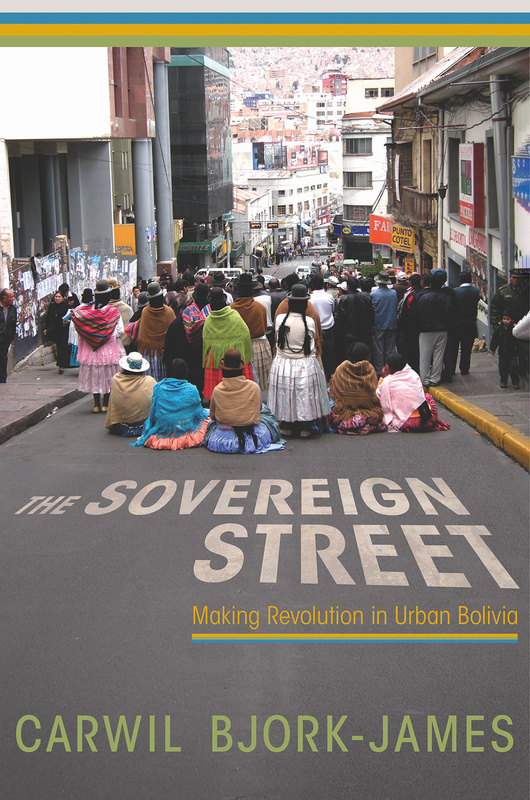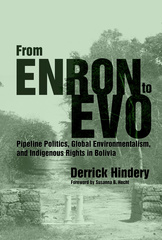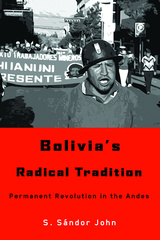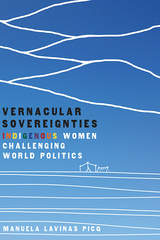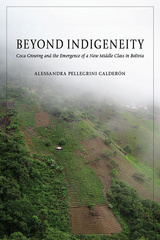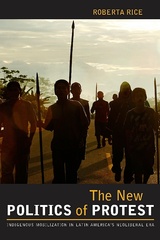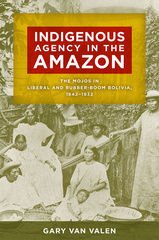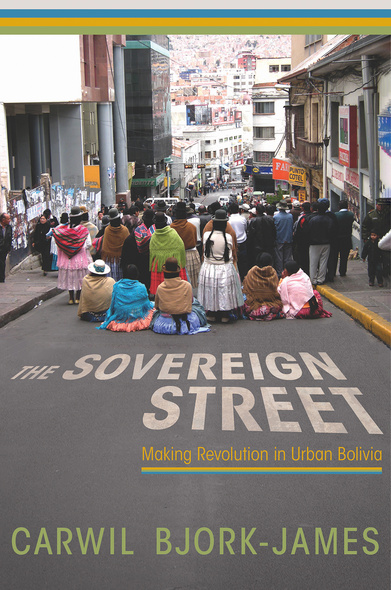
The Sovereign Street
Making Revolution in Urban Bolivia
In the early twenty-first century Bolivian social movements made streets, plazas, and highways into the decisively important spaces for acting politically, rivaling and at times exceeding voting booths and halls of government. The Sovereign Street documents this important period, showing how indigenous-led mass movements reconfigured the politics and racial order of Bolivia from 1999 to 2011.
Drawing on interviews with protest participants, on-the-ground observation, and documentary research, activist and scholar Carwil Bjork-James provides an up-close history of the indigenous-led protests that changed Bolivia. At the heart of the study is a new approach to the interaction between protest actions and the parts of the urban landscape they claim. These “space-claiming protests” both communicate a message and exercise practical control over the city. Bjork-James interrogates both protest tactics—as experiences and as tools—and meaning-laden spaces, where meaning is part of the racial and political geography of the city.
Taking the streets of Cochabamba, Sucre, and La Paz as its vantage point, The Sovereign Streetoffers a rare look at political revolution as it happens. It documents a critical period in Latin American history, when protests made headlines worldwide, where a generation of pro-globalization policies were called into question, and where the indigenous majority stepped into government power for the first time in five centuries.
‘Written in beautiful and engaging prose, The Sovereign Street takes the reader to the frontlines of protest events in contemporary Bolivia and provides a glimpse into the rituals and routines of the urban occupations that changed the course of the country’s history. Based on extensive field research, the study offers a nuanced account of how dimensions of race, class and place shape protest activities and outcomes. It makes a welcome addition to the growing body of work on indigenous politics in Evo Morales’s Bolivia.’—Roberta Rice, author of The New Politics of Protest
‘This is a richly rendered primer of social protest and mass mobilization in Bolivia that will make the reader want to organize a general strike or go block a highway. Bjork-James details with great insight and intimacy the tactics and effects of Bolivian mass mobilization, arguably some of the most effective examples of street action and political change in the world today. A must-read for scholars of social movements and activists of the street.’—Bret Gustafson, author of New Languages of the State
Acknowledgments
Introduction
1. Urban Space Claiming and Revolutionary Events
2. “This, This Is How We Have to All Fight Together”: The Water War as Precedent and Prototype
3. The Power of Interruption: From Blockades to Civic Strikes
4. The Sovereign Street: How Protests Become “the Voice of the People”
5. “We’re No Longer Just Tenants”: Indigenous Bodies Defiantly out of Place
6. Who Owns the City?: Race and Space During the Catastrophic Stalemate
7. A House Divided: Mobilization and Countermobilization Within the Plurinational State
Conclusion: A New Way of Doing Politics
Appendix
Notes
References
Index

